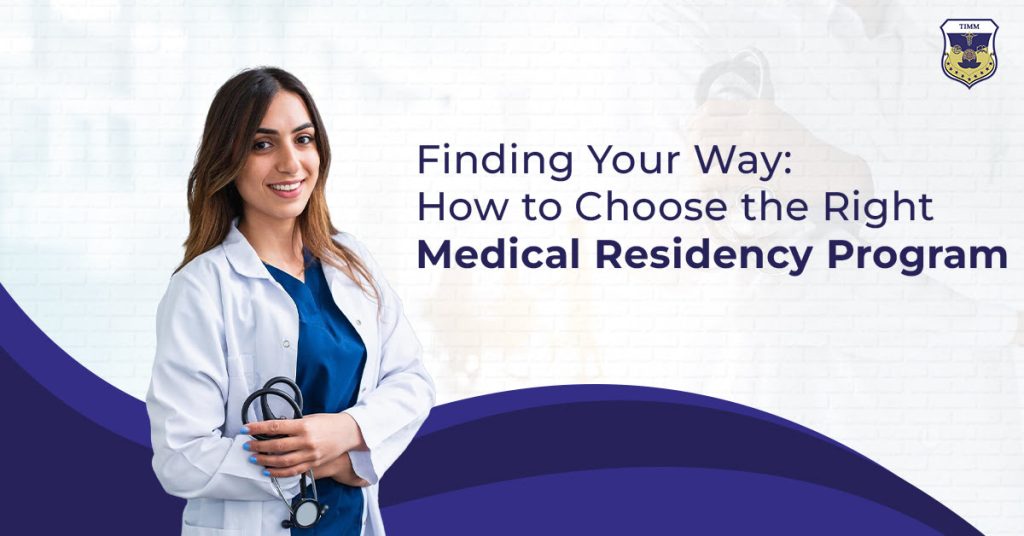Understanding the Application Process

Reapplying for medical residency after a non-match can be a challenging but manageable process. It demands meticulous planning, strategic preparation, and a realistic understanding of the timeline and requirements. This section provides a comprehensive overview of the reapplication process, focusing on key aspects to ensure a successful outcome.
The reapplication process is significantly different from the initial application process. Understanding these distinctions is crucial for navigating the intricacies of the reapplication cycle and tailoring your approach accordingly. This includes recognizing the nuances in program expectations and your own strengths, and how to effectively highlight them.
Timeline for Reapplication
A typical reapplication timeline extends from late summer to early spring. Key milestones and deadlines vary depending on individual circumstances and program preferences, but generally include:
- Summer/Early Fall: Reviewing your performance and seeking feedback. Analyze your previous application, identifying areas for improvement. This is the time to solicit feedback from mentors, professors, and former colleagues.
- Fall/Winter: Preparing application materials. This phase involves refining your personal statement, gathering letters of recommendation, and updating your CV. Consider attending workshops or seminars to enhance your skills.
- Winter/Early Spring: Submitting applications and following up. This includes submitting applications and maintaining consistent communication with programs. This is crucial for monitoring progress and responding to inquiries promptly.
- Spring: Interviews and decision time. Be prepared for potential interviews, showcasing your growth and readiness for residency.
Application Materials for Reapplication, How to reapply for medical residency after not matching
The required application materials for reapplication generally mirror those for the initial application. However, there are subtle but important differences.
- Personal Statement: A reapplication personal statement should demonstrate growth, learning, and a refined understanding of your career goals. It should address the reasons for not matching the first time, and how you have addressed those issues. It should also highlight any significant achievements or experiences since the previous application.
- Letters of Recommendation: These letters are critical. Seek recommendations from individuals who can speak to your strengths, especially those who can address your growth and development since the previous application. Focus on faculty who can attest to your progress.
- Transcripts: Official transcripts are required. Ensure your transcripts are accurate and reflect your academic performance.
Comparing Reapplication and Initial Application Processes
Reapplying involves a significant focus on demonstrating improvement and growth. The initial application process typically emphasizes showcasing qualifications and experiences.
| Aspect | Initial Application | Reapplication |
|---|---|---|
| Focus | Demonstrating qualifications | Demonstrating growth and improvement |
| Personal Statement | Highlighting experiences and skills | Addressing weaknesses and showcasing growth |
| Letters of Recommendation | Showcasing past performance | Demonstrating recent progress and improvement |
Steps in the Reapplication Process
A structured approach significantly increases the likelihood of success. The steps below provide a roadmap for a smooth reapplication process.
- Assess and Reflect: Thoroughly analyze the reasons for the previous non-match. Gain insights from mentors, peers, and advisors to identify areas for improvement.
- Develop a Plan: Craft a realistic timeline, outlining deadlines for each stage of the application process.
- Enhance Application Materials: Carefully refine your personal statement, gather strong letters of recommendation, and update your CV to showcase your development and growth.
- Prepare for Interviews: Anticipate potential interview questions and formulate thoughtful responses, emphasizing your improved skills and readiness for residency.
- Submit Applications: Ensure timely submission of applications and maintain consistent communication with programs.
Potential Challenges and Roadblocks
Several factors can impede the reapplication process. Addressing potential challenges proactively can significantly increase the chance of success.
- Time Management: The reapplication process requires significant time and effort. Effective time management is essential to ensure that all aspects of the application are addressed.
- Feedback Acquisition: Seeking meaningful feedback from mentors and peers can be crucial for refining application materials and improving performance.
- Financial Constraints: Application fees and other associated costs can be significant. Planning for these expenses in advance can help mitigate potential financial strain.
Analyzing Past Performance

Understanding your past performance is crucial for effectively addressing why you didn’t match in your initial residency application. This involves a meticulous review of your medical school experiences and clinical rotations, identifying areas where you excelled and pinpointing areas needing improvement. This self-assessment is key to crafting a compelling personal statement that demonstrates growth and readiness for residency.
Thorough self-reflection is essential to understanding your strengths and weaknesses. This analysis not only informs your future application but also helps you identify patterns in your performance, which in turn can highlight areas needing further development. The goal is to objectively evaluate your past performance to understand where you stand in relation to the demands of residency programs.
Evaluating Past Performance in Medical School
A critical component of analyzing past performance is a comprehensive evaluation of your medical school experiences. This involves reviewing your academic performance, participation in extracurricular activities, and any relevant research or volunteer work. Identify specific instances where you demonstrated strong clinical reasoning, communication skills, and empathy.
- Academic Performance: Review your grades and understand how they reflect your understanding of medical concepts and your ability to apply knowledge. Identify any areas where your performance could have been better and how you might address them.
- Clinical Rotations: Analyze your experiences on each rotation, focusing on your performance in patient interactions, procedural skills, and critical thinking. Document instances of effective teamwork, strong communication, and problem-solving abilities.
- Extracurricular Activities and Research: Evaluate how your participation in extracurricular activities and research projects demonstrates your dedication and interests. Were these activities reflective of your future goals and how could you highlight this in your personal statement?
Identifying Areas for Improvement
Once you have a comprehensive understanding of your past performance, it’s essential to identify areas needing improvement. Honest self-assessment is crucial for growth and demonstrating to residency programs that you are actively working on developing the skills necessary for success.
- Skill Gaps: Identify specific skills or areas where your performance could have been stronger. For example, were there instances where your communication skills could have been improved, or where your critical thinking process could have been more efficient? Highlight any specific training or learning experiences that will address these gaps.
- Weaknesses in Application Materials: Evaluate your application materials (e.g., personal statement, letters of recommendation) to identify areas where your strengths were not effectively communicated. This might include instances where you could have provided more concrete examples or used stronger language to highlight your achievements.
- Identifying Patterns: Look for recurring patterns in your performance. Did you consistently struggle with a particular skill or type of patient interaction? Identifying these patterns will enable you to target your preparation for the next application cycle.
Understanding the Reasons for Not Matching
Understanding the reasons behind not matching is crucial to improving your application for future cycles. Analyze feedback from the programs you interviewed with and reflect on any patterns or recurring themes.
- Program Feedback: Obtain feedback from the programs you interviewed with, if available. This can provide specific insights into areas where you need to improve and areas that resonated positively.
- Self-Assessment: Engage in self-assessment. Consider your experiences during the application process, including interviews, and reflect on any aspects where you feel you could have performed better. What could you have done differently to present yourself more effectively?
Template for a Personal Statement Addressing Reasons for Not Matching
A personal statement addressing the reasons for not matching should be concise and focused. It should highlight the lessons learned from the previous application cycle, the specific areas you have addressed, and the growth you have achieved.
“My previous application cycle was a valuable learning experience. I identified areas for improvement in my communication skills and refined my approach to highlighting my clinical reasoning skills. This led to significant personal development in [specific area], which I have demonstrated through [specific examples]. I am confident that this preparation will allow me to succeed in the next cycle.”
Enhancing Skills and Experiences

Reapplying for medical residency after a non-match requires a strategic approach to highlight growth and demonstrate readiness for the rigors of residency training. This involves proactively developing new skills and acquiring relevant experiences that showcase your commitment to medical advancement and your potential for success. Focus on activities that align with your chosen specialty and demonstrate your ability to thrive in a demanding environment.
A crucial aspect of reapplication is showcasing demonstrable improvement and progress. This involves not only acquiring new skills but also effectively communicating those improvements to residency programs. This requires careful planning, focused effort, and a meticulous approach to documenting and showcasing your development.
Developing New Skills and Experiences
A well-structured plan for skill development is essential. This involves identifying areas needing improvement and creating a roadmap to address them. This includes targeted learning activities, mentorship opportunities, and actively seeking out environments where these skills can be practiced and refined. By demonstrating sustained effort in these areas, you effectively convey a proactive and determined approach to your future medical career.
Gaining Experience in High-Demand Specialties
Targeting high-demand specialties necessitates proactive steps to gain experience in those areas. Opportunities like shadowing, volunteering, or research rotations can offer valuable insights into the specialty and the challenges associated with it. Moreover, exploring relevant publications and attending conferences in these fields will bolster your knowledge and show genuine interest in the specialty. This demonstrably enhances your profile and makes your application stand out.
Improving Performance in Key Areas
Developing key skills such as communication, teamwork, and problem-solving is crucial for success in residency. Seek opportunities to practice these skills, such as joining student organizations, participating in group projects, or engaging in simulated clinical scenarios. A focus on these essential skills can significantly enhance your profile and improve your chances of acceptance into a competitive residency program.
Showcasing Growth and Improvement
Demonstrating growth and improvement through new experiences and skills is vital. Highlighting your involvement in challenging projects, leadership roles, or accomplishments in volunteer work effectively conveys your commitment to personal and professional growth. The key is to showcase the impact you’ve made, emphasizing the positive changes you’ve achieved and the lessons learned from these experiences.
Potential Experiences to Enhance the Application
- Shadowing: Shadowing experienced physicians in the chosen specialty provides valuable insight into daily practice and patient care. This direct observation allows for the understanding of nuances and challenges specific to the specialty. Focus on actively observing and participating in interactions with patients, staff, and colleagues.
- Volunteering: Volunteering in hospital settings, clinics, or community health organizations offers practical experience and exposure to diverse patient populations. Documentation of volunteer work and a description of specific tasks undertaken is important. This demonstrates your commitment to patient care and community engagement.
- Research Opportunities: Participating in research projects related to your chosen specialty provides an avenue to develop research skills and contribute to the body of medical knowledge. This fosters critical thinking, analytical skills, and a scientific approach to patient care. Publication in a peer-reviewed journal or presentation at a conference further enhances your application.
Crafting a Compelling Application

Re-applying for medical residency after a non-match can be challenging, but with a well-crafted application, you can significantly increase your chances of success. This section focuses on the crucial aspects of crafting a compelling application, emphasizing strategies to showcase your growth, address any perceived shortcomings, and highlight your suitability for the programs you target.
A successful re-application hinges on demonstrating both growth and understanding of the application process. This involves more than just listing accomplishments; it’s about narrating your journey, emphasizing your development, and directly addressing any reasons for not matching in a constructive and proactive manner.
Crafting a Compelling Personal Statement
A compelling personal statement is paramount. It should not just recount your experiences but delve into your motivations, growth, and how you’ve addressed any perceived weaknesses. This is your opportunity to showcase your evolution since your previous application. Directly and thoughtfully address any issues that might have contributed to your previous non-match. Demonstrate a nuanced understanding of the challenges and a proactive approach to addressing them. For example, a statement that acknowledges a weakness in communication skills, and details specific steps taken to improve them, is much more impactful than one that simply avoids mentioning it.
Tailoring Letters of Recommendation
Tailoring letters of recommendation to specific programs is crucial. Generic letters, while well-intentioned, won’t convey the targeted information residency programs are looking for. Highlight aspects of the recommender’s knowledge about you that directly relate to the program’s specific interests and values. Request specific comments or experiences from your recommenders that directly address program-specific criteria.
Communicating Strengths and Weaknesses in Letters of Recommendation
Letters of recommendation should not only highlight strengths but also address weaknesses constructively. If a particular area for improvement is evident, proactively address it in the context of your development since your previous application. For example, a letter could acknowledge a need for improved teamwork skills and then describe how you sought opportunities to improve these skills through specific activities or projects. Focus on demonstrating growth and adaptation.
Showcasing Experiences
Showcase significant experiences in a clear and concise manner. Instead of simply listing your experiences, weave them into a narrative that highlights your evolution and skills. Quantify achievements whenever possible. For instance, rather than saying “I led a project,” specify the project’s impact, like “I led a project that resulted in a 15% increase in patient satisfaction scores.”
Selecting and Requesting Letters of Recommendation
Carefully select recommenders who can speak to your specific skills and experiences. Prioritize professors and mentors who understand your career goals and can provide insightful, specific, and positive feedback. Reach out to these recommenders well in advance of the application deadline. Be clear and specific about the aspects of your application you’d like them to address. Provide them with a detailed list of the specific programs you’re applying to, to help them tailor their letters to the unique requirements of each institution. Give them a draft of your personal statement, so they can align their comments to your growth narrative. This proactive communication ensures the letters of recommendation are valuable assets.
Preparing for Interviews

Successfully navigating the residency interview process is crucial for reapplication success. A well-prepared candidate can effectively communicate their qualifications, address any past performance concerns, and showcase their growth and readiness for residency. Thorough preparation is key to presenting yourself in the best possible light and demonstrating your suitability for the program.
Thorough preparation for the interview process is vital for successful reapplication. It involves a deep dive into the interview format, anticipating common questions, and developing compelling responses that highlight your strengths and growth. This approach equips you to confidently address concerns and showcase your readiness for residency.
Common Interview Questions and Effective Responses
Understanding the types of questions you might encounter is essential. This knowledge allows you to craft thoughtful and compelling responses that highlight your qualifications and address potential concerns. Anticipating common questions empowers you to demonstrate your readiness and suitability for the program.
- “Why did you not match last cycle?” This is a critical question, demanding a thoughtful and honest response. Avoid vague or evasive answers. Focus on what you learned from the experience and how you’ve used that knowledge to improve your application and preparation. For example, you could acknowledge a deficiency in your application and explain how you addressed it through additional training or experiences. Be candid about any weaknesses and demonstrate how you have grown since the last cycle.
- “What are your strengths and weaknesses?” Highlight relevant strengths that align with the specific program’s values and requirements. However, also acknowledge a perceived weakness and demonstrate how you are actively working to improve it. This showcases self-awareness and a commitment to continuous growth.
- “Describe a time you faced a challenging situation.” This is an opportunity to showcase problem-solving skills and resilience. Focus on the specific steps you took to address the situation, the outcome, and what you learned from the experience. Illustrate how you handled the situation professionally and effectively.
Practicing Interview Skills
Regular practice is key to interview success. Consistent practice through mock interviews and feedback sessions significantly enhances your confidence and preparedness. Simulated interviews provide valuable opportunities to refine your communication and answer-delivery skills.
- Mock Interviews: Conduct mock interviews with mentors, advisors, or peers. This simulated environment provides a valuable platform to rehearse responses to common questions and receive constructive feedback. Seek feedback on your body language, tone, and overall presentation.
- Feedback Sessions: Engage in post-mock interview feedback sessions to critically analyze your performance. Identify areas for improvement in communication, presentation, and content delivery. Ask for specific suggestions on how to better address anticipated questions.
Demonstrating Empathy and Communication Skills
Demonstrating empathy and effective communication is vital. These skills are essential for any medical professional, especially during an interview. These skills are crucial for building rapport with interviewers and showcasing your suitability for the program.
- Empathy: Empathy demonstrates your understanding of and concern for others. During the interview, show your understanding and concern for others. In your answers, express your compassion and willingness to collaborate with colleagues. This includes demonstrating a sensitivity to patients’ needs and situations.
- Communication: Clear and concise communication is essential for conveying your qualifications and insights effectively. Practice articulating your thoughts and experiences clearly and concisely. Practice active listening and responding thoughtfully to questions. This shows your ability to effectively interact with patients, colleagues, and the broader healthcare team.
Addressing Past Performance Issues and Demonstrating Growth
Addressing any past performance concerns with honesty and a focus on growth is crucial. This approach demonstrates maturity and a commitment to self-improvement. Illustrate how you have learned from any setbacks and demonstrate your preparedness for residency.
- Honest Acknowledgment: Acknowledge any past performance issues with honesty and maturity. Don’t try to minimize or ignore them. Instead, address them directly, explaining the circumstances and what you learned from the experience.
- Demonstrating Growth: Showcase how you have grown and improved since the last cycle. Provide concrete examples of how you’ve gained experience, skills, or knowledge that demonstrate your readiness for residency.
Common Interview Questions and Sample Answers for Reapplication
| Question | Sample Answer |
|---|---|
| Why did you not match last cycle? | “During the last application cycle, I felt my application could have been stronger in [specific area, e.g., research experience]. Since then, I’ve gained experience in [specific area] by [describe experience]. This experience has allowed me to [show improvement].” |
| What are your strengths and weaknesses? | “My strengths include [specific strength, e.g., strong communication skills, problem-solving abilities]. One area I’m focusing on improving is [specific weakness, e.g., time management]. I’ve been working on this by [explain specific strategies, e.g., using a planner, prioritizing tasks].” |
| Describe a time you faced a challenging situation. | “During a challenging rotation, I encountered [describe the situation]. My approach was to [explain steps taken]. The outcome was [explain the outcome]. I learned [describe what you learned]. This experience solidified my [specific skill, e.g., ability to work under pressure, problem-solving skills].” |
Navigating the Application Process

Reapplying for medical residency after a non-match can be a challenging but manageable process. Understanding the potential obstacles and developing strategies to overcome them is crucial for a successful reapplication. This section will explore key aspects of navigating the application journey, from handling rejections to maintaining motivation and staying organized.
Potential Obstacles and Strategies
The reapplication process presents several potential hurdles. These may include limited time, a sense of disappointment or discouragement after a non-match, and the need to demonstrate significant improvement in the application materials. Effective strategies to mitigate these obstacles involve realistic self-assessment, proactive networking, and focused effort. This includes identifying weaknesses in the previous application and developing actionable plans to address them. Furthermore, seeking mentorship and guidance from experienced individuals within the medical community can provide invaluable support and insights.
Successful Reapplication Strategies
Many successful reapplicants leverage a combination of factors. A common thread is a demonstrated commitment to addressing weaknesses and enhancing strengths. For example, one applicant might have focused on gaining experience in a specific area of medicine not previously highlighted in their application. Another might have sought mentorship to refine their interview skills. These focused efforts, combined with a clear understanding of the desired residency program’s requirements, can significantly increase the chances of success.
Importance of Organization and Stress Management
Maintaining meticulous organization is vital during the reapplication process. This involves meticulously tracking deadlines, meticulously organizing application materials, and scheduling time for each task. Creating a detailed timeline helps in staying on track and preventing potential delays. Effective stress management techniques, such as regular exercise, mindfulness practices, and adequate sleep, are equally important. Prioritizing self-care is crucial to maintaining a positive and productive mindset throughout the process.
Handling Rejection and Maintaining Motivation
Rejection is an inevitable part of the application process. Viewing each rejection as a learning opportunity, rather than a personal failure, is crucial. Taking time for reflection and analysis of the rejection letters can reveal areas for improvement. Seeking feedback from mentors or advisors can provide further insights into how to address any shortcomings. Maintaining a positive attitude and reminding oneself of the long-term goals and passion for medicine are vital to staying motivated.
Tracking Progress and Application Status
Effective tracking of application progress and staying updated on status is essential. This includes using a dedicated calendar or spreadsheet to track deadlines and application submission dates. Regularly checking application portals and maintaining communication with program coordinators can help ensure that applications are submitted on time and that any necessary follow-up actions are taken. This methodical approach reduces the risk of missed deadlines or important communications.
Key Questions Answered: How To Reapply For Medical Residency After Not Matching
How to reapply for medical residency after not matching – What is the typical timeline for reapplying to medical residency programs?
The timeline for reapplying varies, but generally involves completing the application process during the summer and early fall, often overlapping with the initial application cycle. Key deadlines for reapplication include application submission dates and program interview deadlines.
What are some common challenges applicants face during the reapplication process?
Common challenges include managing stress, maintaining motivation after rejection, and effectively addressing past performance issues during interviews.
How important are letters of recommendation in the reapplication process?
Letters of recommendation are critical. They should be tailored to specific programs and effectively communicate your strengths and growth areas.
What should I do if I’m rejected from a program?
Rejection is part of the process. It’s important to analyze the feedback received, reflect on the experience, and adjust your approach for future applications.